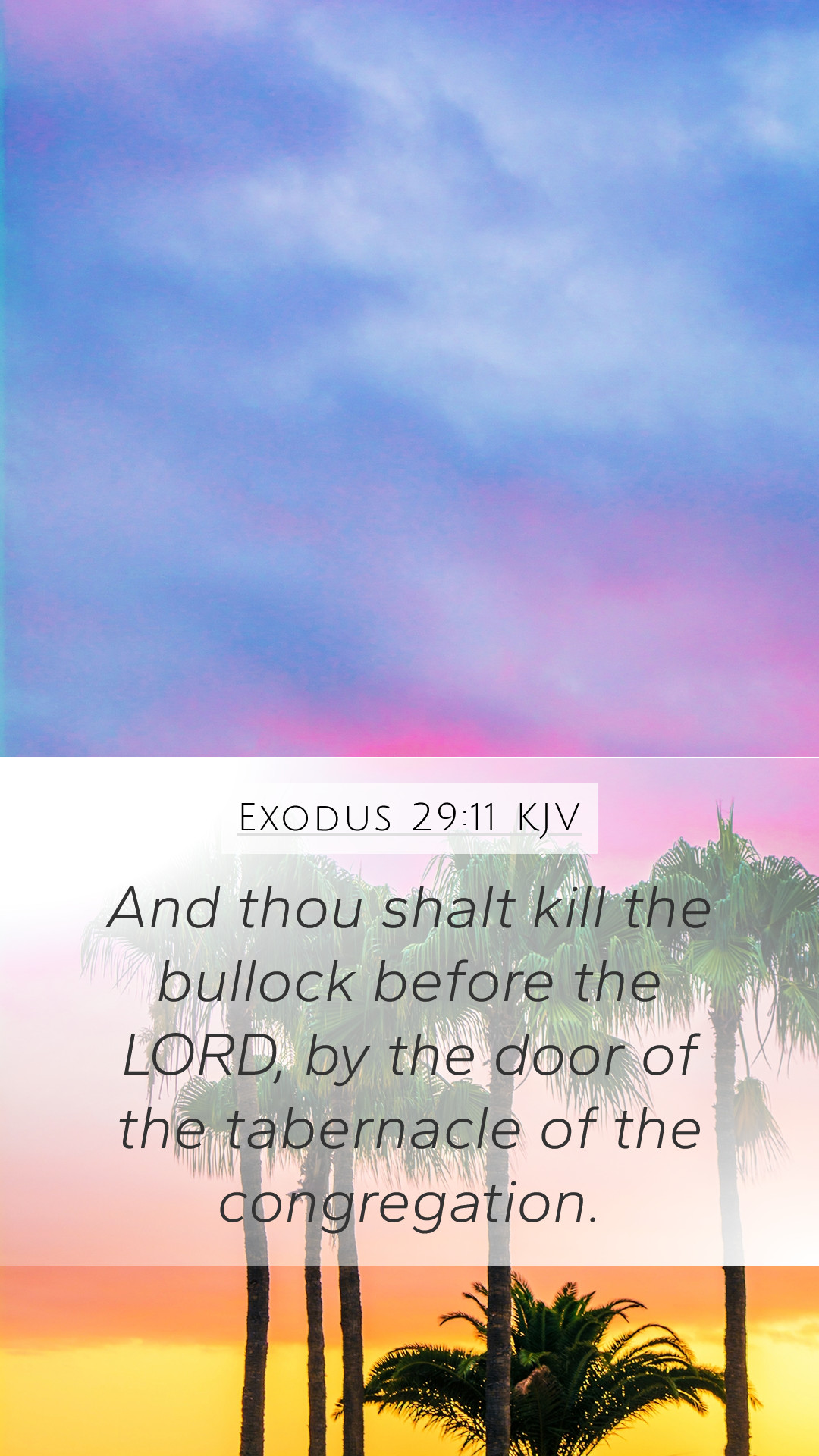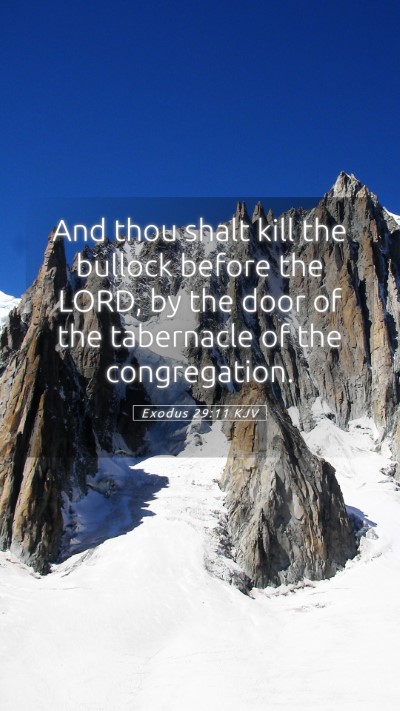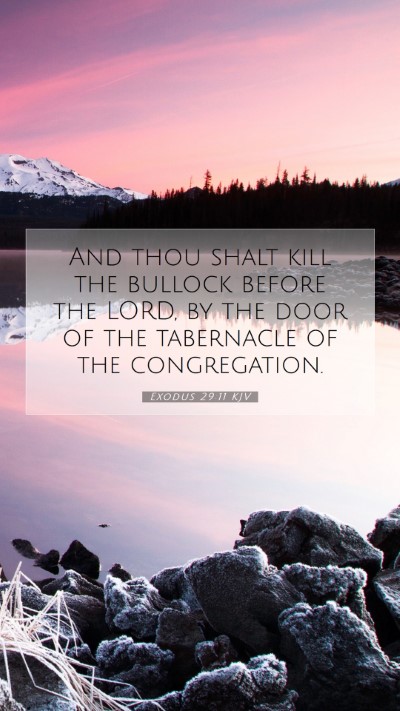Exodus 29:11 - Meaning and Commentary
Bible Verse: Exodus 29:11 (KJV) - "And thou shalt kill the bullock before the Lord, by the door of the tabernacle of the congregation."
This verse marks a significant moment in the initiation of the priestly service and the consecration of Aaron and his sons. Here, we delve into its meaning and implications through insights from renowned public domain commentaries.
Summary of Interpretations
The act of killing the bullock is not merely a ritual but has profound spiritual significance. It symbolizes the following key aspects:
- Substitution: The bullock served as a means of atonement. This captures the essence of sacrificial offerings where the animal's death represents the consequences of sin.
- Public Declaration: The slaying occurs "before the Lord," indicating that this act of worship is done openly and in the sight of God, reinforcing the sacredness of the occasion.
- Setting Apart: By killing the bullock at the tabernacle's entrance, it marks the transition of the space into a sacred realm, thus setting apart the area for divine engagement.
Commentary Insights
Matthew Henry's Commentary
Matthew Henry emphasizes the significance of sacrifice in the Old Testament, noting that the bullock's blood is essential for the atonement of sins. He states that this act teaches the seriousness of sin and the need for a sacrifice. The killing of the bullock was also a concrete act that would bring to mind the covenant relationship between God and His people.
Albert Barnes' Commentary
Albert Barnes discusses how the bullock signifies the importance of the priestly role. He asserts that a priest's duties are underscored by their need for purification and atonement. Barnes points out that this verse relates not only to the priesthood but also reflects the broader theological principle of representation where the bullock serves as a symbolic proxy for the people’s sins.
Adam Clarke's Commentary
Adam Clarke highlights the specific ritualistic practices associated with sacrifices, detailing the need for strict adherence to divine instructions. Clarke explains that this passage sets a precedent for future sacrificial practices within the Israelite community. The public execution of the bullock before the tabernacle makes the act part of communal worship, suggesting a collective responsibility for sin.
Applications of Exodus 29:11
For modern readers, this verse encourages several reflective practices:
- Understanding Personal Sacrifice: Just as the bullock was sacrificed, believers might contemplate what they are willing to offer to God in their lives.
- Community Worship: The communal aspect of the ritual serves as a reminder of the importance of gathering together in worship and accountability.
- Emphasis on Holiness: This act signifies the necessity of approaching God with a clean heart, recognizing that there is a cost to sin.
Cross References
- Leviticus 4:27-31: Discusses the guilt offering and its significance in atonement.
- Hebrews 9:22: States that without the shedding of blood, there is no remission of sins.
- Romans 12:1: Encourages believers to present their bodies as a living sacrifice, symbolizing our dedication to holiness.
Conclusion
In conclusion, Exodus 29:11 provides a key insight into the sacrificial system established by God, serving as a precursor to the ultimate sacrifice of Christ. Understanding this verse allows for a deeper appreciation of biblical themes like atonement, sacrifice, and community worship. These insights are vital for any Bible study group or individual seeking to understand Scripture better.
For those exploring Bible verse explanations and aiming for better Bible study insights, Exodus 29:11 stands as a crucial element in the narrative of redemption and covenant within the Old Testament.


